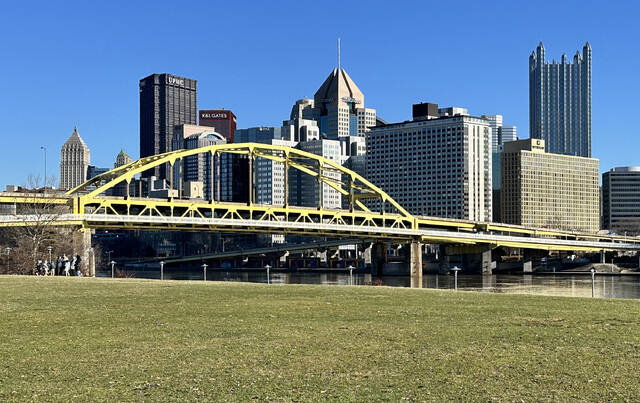Developers who transform Downtown Pittsburgh’s empty offices into housing or new commercial uses will now qualify for special tax relief as city officials try to revitalize an area with significant vacancies and declining property values.
Pittsburgh City Council on Tuesday approved a new tax break — which can last for six to 10 years — to reward those who redevelop empty office space.
Office vacancies Downtown have soared since the covid-19 pandemic spurred a widespread shift to remote work.
Downtown’s current office vacancy rate of about 27% is projected to jump to 46% by 2028, according to Councilman Bobby Wilson, D-North Side.
The goal of the tax break, officials said, is to rejuvenate Downtown, boost housing and stabilize property values in the Golden Triangle.
The measure, sponsored by Wilson, impacts only the city’s portion of the real estate tax bill and does not affect county or school district taxes. It applies only to the new value added by redevelopment.
Wilson introduced the measure in March and has since amended the legislation based on concerns from colleagues.
The final version includes a tiered system that allows developers to receive various levels of tax breaks depending on the level of benefits their projects provide.
Related:
• Councilman Wilson pitches latest idea to fill Pittsburgh's Downtown buildings
• Pittsburgh Controller Heisler warns in annual report of trouble on horizon for city finances
• Pittsburgh controller warns of threat to city's fiscal health, urges changes to budget
For example, projects that convert office space to residential might receive a sliding scale of tax breaks depending on how the affordable housing component is structured. The more the housing benefits poorer people, the bigger the tax break.
Developers also can get tax breaks of varying degrees for providing full-time jobs at commercial projects.
Some council members had voiced concerns that the program does not mandate affordable housing or local union workers on job sites.
Still, members seemed to agree that amendments tweaking the legislation last month marked a compromise they could all support.
Upcoming Local Events
Doing nothing, said Councilwoman Erika Strassburger, D-Squirrel Hill, “virtually guarantees” a dramatic drop in the value of taxable property in the Golden Triangle, which comprises about a quarter of the city’s property tax base.
Spurring redevelopment, however, could help address that issue, while also providing jobs.
The tax break, Wilson said, is just “one tool to incentivize conversion Downtown.”
City Council unanimously voted in favor of the tax abatement. Councilwoman Theresa Kail-Smith, D-West End, was not present for the vote.
Julia Felton is a TribLive reporter covering Pittsburgh City Hall and other news in and around Pittsburgh. A La Roche University graduate, she joined the Trib in 2020. She can be reached at jfelton@triblive.com.

